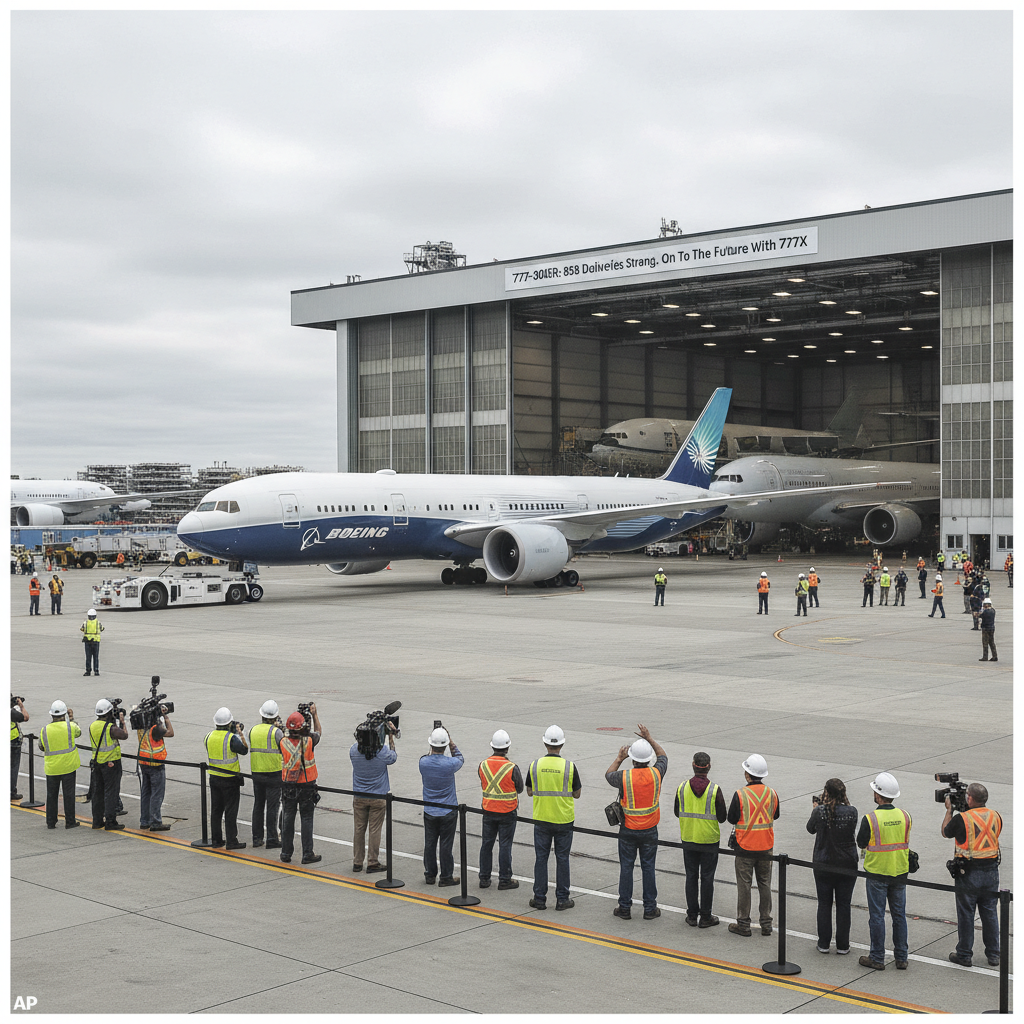Physical Address
304 North Cardinal St.
Dorchester Center, MA 02124
Physical Address
304 North Cardinal St.
Dorchester Center, MA 02124
Global aviation news tracker
Global aviation news tracker

Boeing has officially ended production of the Boeing 777-300ER, with the final delivery recorded in 2024 as the company pivots to the 777X program.
The 777-300ER (Extended-range variant of the 777 family) first entered service in 2004 and became a long-haul workhorse thanks to a range of about 7,370 nautical miles and large passenger capacity. Over roughly two decades Boeing built and delivered more than 800 examples, and many airlines will continue to operate the type for years to come.
Production at Boeing’s Everett, Washington factory will now focus on the 777X, a next-generation widebody promised to cut fuel burn and emissions. The 777X program has secured more than 500 orders, but certification delays have pushed first deliveries into 2025, extending the timeline for airlines waiting on the new type.
Airlines’ appetite shifted toward newer, more fuel-efficient models as fuel costs and environmental rules tightened. Boeing says retrofit and sustainability programs will support the existing 777-300ER fleet while the company pursues net-zero targets. Meanwhile, competition from Airbus widebodies and changing route economics influenced buying decisions across the industry.
The long-term picture: existing 777-300ERs are likely to be refurbished and kept flying on profitable long-haul routes while carriers phase in 777X jets as they enter service. For passengers used to the 777-300ER’s capacity and range, transitions will be gradual rather than sudden.
Industry watchers will follow 2025 closely — that year remains the new target for initial 777X deliveries after recent certification setbacks — and airlines will balance fleet renewal with sustainability and operating-cost pressures.